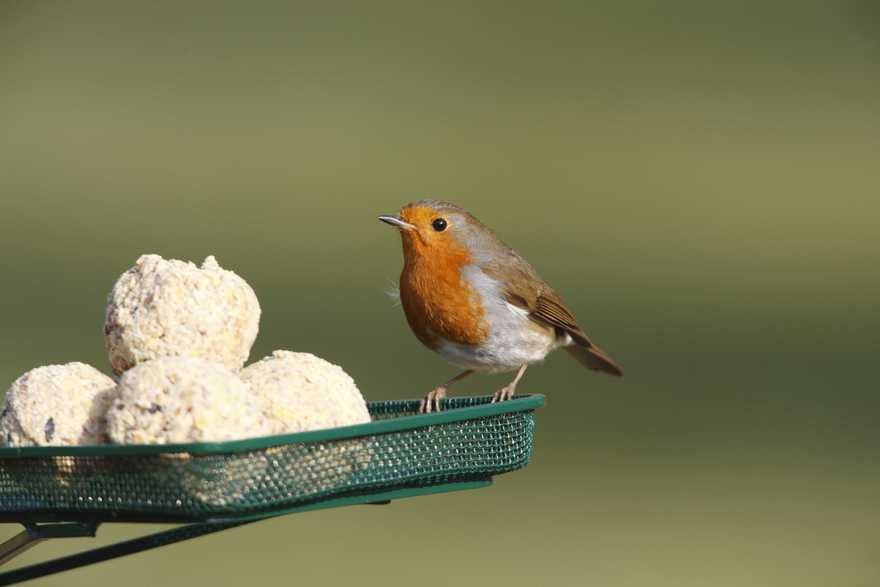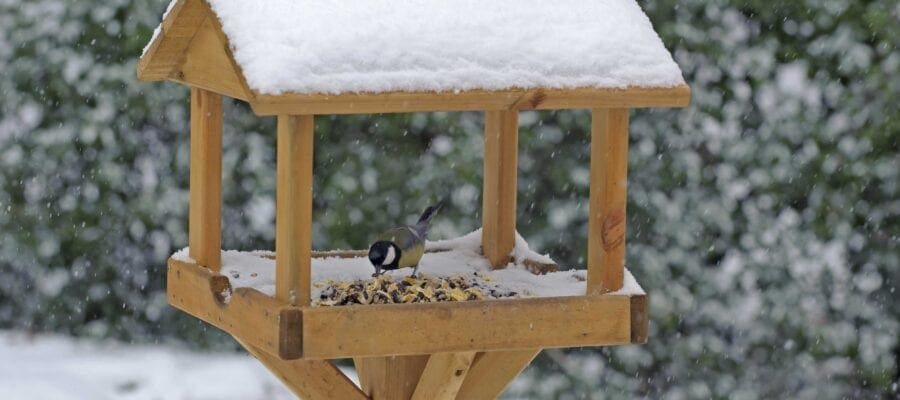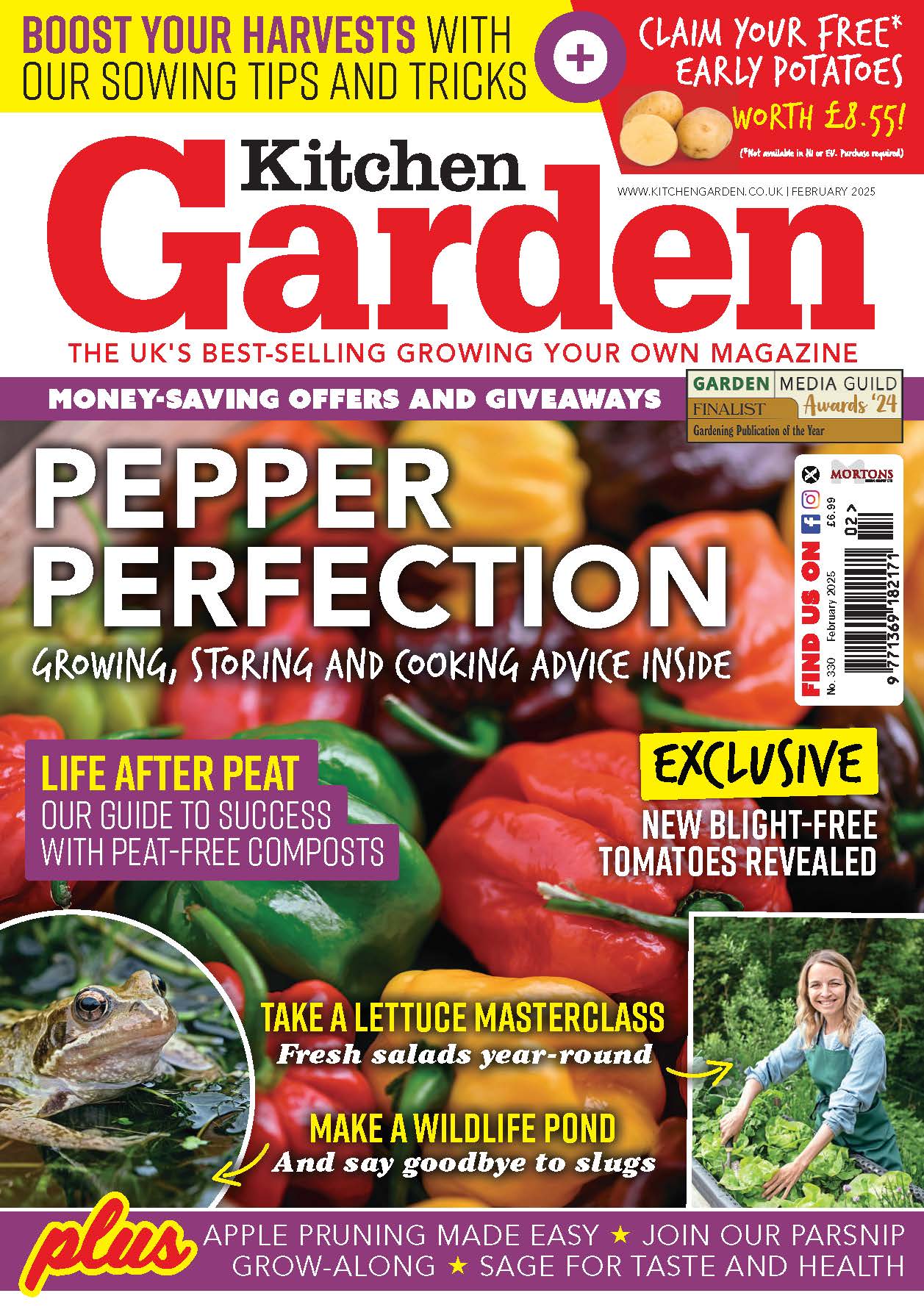With winter closing in, the RSPB has shared its top tips on how best to help your garden birds through the winter
Birds have benefited from the mild autumn, says the Royal Society for the Protection of Birds, but will start to struggle as natural resources dwindle and shorter days leave them less time for foraging – so they will then move into gardens in greater numbers.

The RSPB’s tips include:
- Birds need high-energy foods like suet balls or cakes in cold weather to maintain their fat reserves, so they can survive the frosty nights. Sunflower seeds are also high in fat – the oil content is higher in black than in striped ones, so those are a better choice.
- Avoid bird food mixtures with large amounts of wheat, barley grains, split peas, beans, dried rice or lentils. These are added to some cheaper mixes to bulk them up, but only attract larger birds such as pigeons and doves. The better mixtures contain plenty of naked oats, sunflower seeds and suet pieces.
- Kitchen scraps like mild grated cheese, fruit, cooked rice, unsalted bits of fat, roast potatoes and raw porridge oats will all be gratefully received. Dried fruits, such as raisins, sultanas and currants, are particularly enjoyed by blackbirds, song thrushes and robins.
- Avoid bird foods containing palm oil, or you will be harming wildlife in other parts of the world in order to support it at home.
- Do not put out used cooking fat, as this can stick to birds’ feathers and stop them being waterproof. Other foods to avoid are dried coconut, cooked porridge oats, milk, and mouldy or salted food.
- Put new nestboxes up now – many birds will use them for shelter on cold nights, with several often packing in together for extra warmth.
Go to https://www.rspb.org.uk/ for more advice.
Pictures: RSPB bird table: Chris Gomersall/rspb-images.com, RSPB robin: Nigel Blake/rspb-images.com





